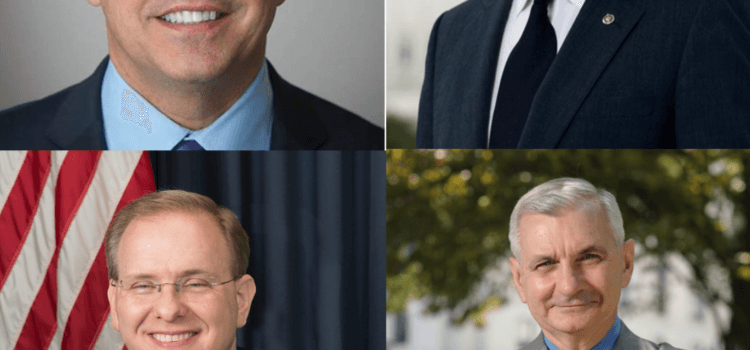By Alex Reice
PROVIDENCE, R.I.– After the midterm elections turned the House of Representatives blue, Rhode Island’s Democratic Congressmen say they are hopeful that their party is positioned for success in 2020. Recently re-elected officials Sen. Sheldon Whitehouse D-R.I., Rep. David Cicilline ’83 D-R.I. and Rep. Jim Langevin D-R.I. in addition to Sen. Jack Reed D-R.I., who was not up for re-election Nov. 6, spoke to The Herald about their hopes for the future of the country and the Democratic Party.
“We had extraordinary candidates running for Congress all across the country, and I think Democrats, including me, ran on a very specific agenda that really focused on the issues that are important to the American people,” Cicilline said.
Among the most pressing issues for Rhode Island’s elected officials is affordable healthcare. Whitehouse plans to prioritize healthcare by changing the industry’s incentives — rewarding doctors for having healthy patients rather than for the number of procedures they perform, he said.
The congressmen also said they are ramping up efforts to improve economic conditions for middle-class families in the state. Cicilline hopes Congress takes action “on a number of proposals to help raise incomes and really address the economic consolidation in this country,” he said. “People need to earn a living wage,” and “nobody should be working 40 hours a week and living below the poverty level,” Langevin added.
Rhode Island representatives and senators alike expressed the importance of bipartisanship in addressing the issues most important to them. With the Senate and the presidency still in Republican hands, the only way to pass legislation in Congress is to work together “wherever possible,” Langevin said, adding that there is potential for bipartisan cooperation when it comes to infrastructure. Trump campaigned on a $1 trillion dollar infrastructure package, but getting that through Congress is something that will take both Democrats and Republicans, Langevin added.
While they plan to work across the aisle in Congress, Rhode Island’s elected officials see the election results as a sign of Americans’ dissatisfaction with Washington’s current Republican leadership. “There are a number of issues where I think the Democrats better reflect the concerns and wishes of the American public,” Whitehouse said. Americans are “voting for change, and they’re voting for Democrats,” Langevin said.
The Democratic majority in the House will also likely focus on checking the presidency, Cicilline said. “We’re going to be able to conduct real oversight,” he added. Democrats’ success sends a signal that Americans want to see “real accountability in Washington,” Reed said.
“Once there’s another power sector in Washington that he has to deal with, I think that the conversation will move much towards the middle,” Whitehouse said.
Rhode Island’s congressmen are also concerned about Trump’s recent firing of Attorney General Jeff Sessions. In place of Sessions, Trump selected Matthew Whitaker as interim Attorney General, circumventing the normal line of succession which calls on the Deputy Attorney General to serve. “Why would you bring in somebody who isn’t in the ordinary line of succession and has not been confirmed by the Senate, unless you have some ulterior motive?” Whitehouse said. If it were just an ordinary president, “there’s nothing to get too excited about,” he added.
Now that the midterms are over, the Democrats voted into office are ready to show their constituents that they can accomplish real change. According to Langevin, Democrats have been running on an economic message prioritizing the working and middle class for years, and with newfound control of the House, “hopefully that is the message that we can deliver on. … We have two years before the next election to earn our message with the bills that we pass and the work that we do,” Whitehouse said, emphasizing the importance of running on policy rather than relying on political messaging to win over voters.
In preparation for a competitive presidential election in 2020, Cicilline sees issues centered around lowering healthcare costs, protecting retirement security and ensuring economic security for all as “the heart and soul of the Democratic Party,” he said. “I have no doubt that we’re going to have a very strong candidate to run against Trump, if he’s a candidate in 2020,” he added.





